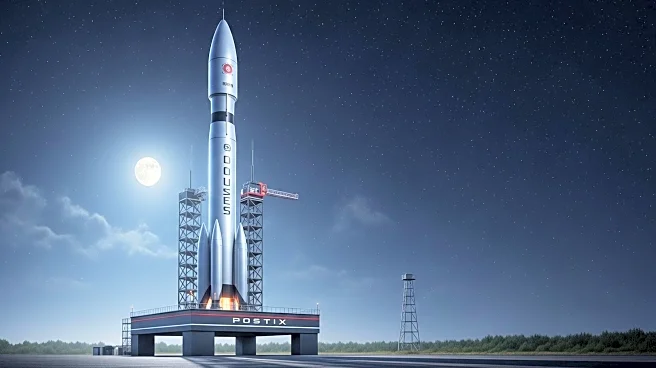What is the story about?
What's Happening?
SpaceX CEO Elon Musk has publicly commented on the possibility of Blue Origin, led by Amazon founder Jeff Bezos, playing a significant role in NASA's Artemis 3 mission to the Moon. This comes after NASA officials warned of potential delays with SpaceX's Starship rocket, which is crucial for the mission planned for 2027. Musk responded to a post on social media with a dismissive 'lol,' indicating skepticism about Blue Origin's involvement. Musk has also stated that SpaceX aims to launch over 95% of the world's satellites by 2027, potentially increasing to 98%. Additionally, Musk shared updates on the development of Starship V3 and V4 rockets, which promise larger sizes and enhanced payload capacities.
Why It's Important?
The exchange highlights the competitive dynamics between SpaceX and Blue Origin, two major players in the space industry. Musk's comments underscore SpaceX's ambition to dominate satellite launches globally, which could have significant implications for the space sector and related industries. The potential involvement of Blue Origin in the Artemis 3 mission could affect NASA's plans and timelines, impacting the broader goals of lunar exploration. The rivalry between Musk and Bezos reflects the intense competition in the private space sector, influencing technological advancements and strategic partnerships.
What's Next?
As NASA continues to plan for the Artemis 3 mission, the agency may need to address the potential delays with SpaceX's Starship rocket. The development and testing of Starship V3 and V4 rockets will be crucial for SpaceX's future missions. Meanwhile, Blue Origin's role in the mission could evolve, depending on NASA's decisions and the progress of its lander technology. The competitive landscape between SpaceX and Blue Origin is likely to intensify, with both companies striving to secure key roles in upcoming space missions.
Beyond the Headlines
The rivalry between SpaceX and Blue Origin may drive innovation in the space industry, as both companies push the boundaries of technology and capabilities. This competition could lead to advancements in satellite technology, lunar exploration, and interplanetary travel. The strategic moves by Musk and Bezos may also influence public perception and investment in space ventures, shaping the future of private space exploration.















